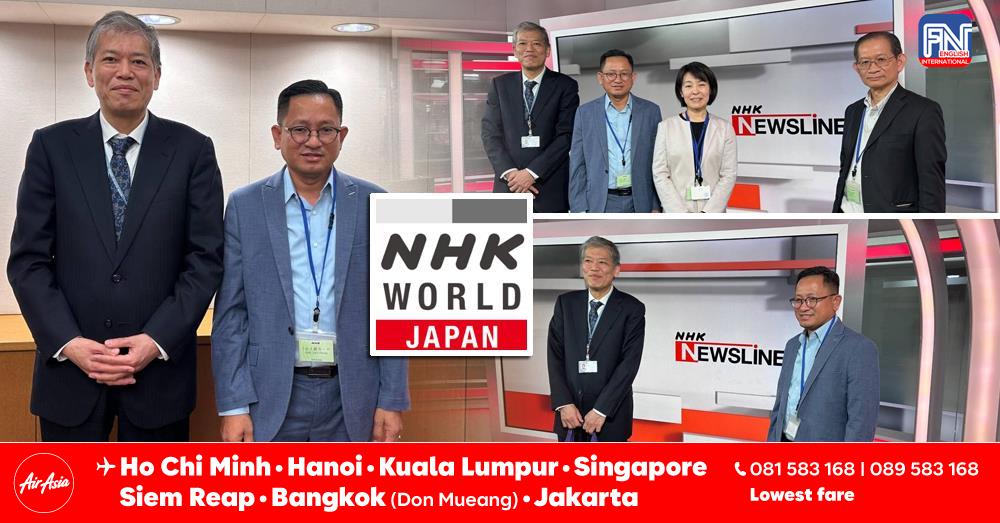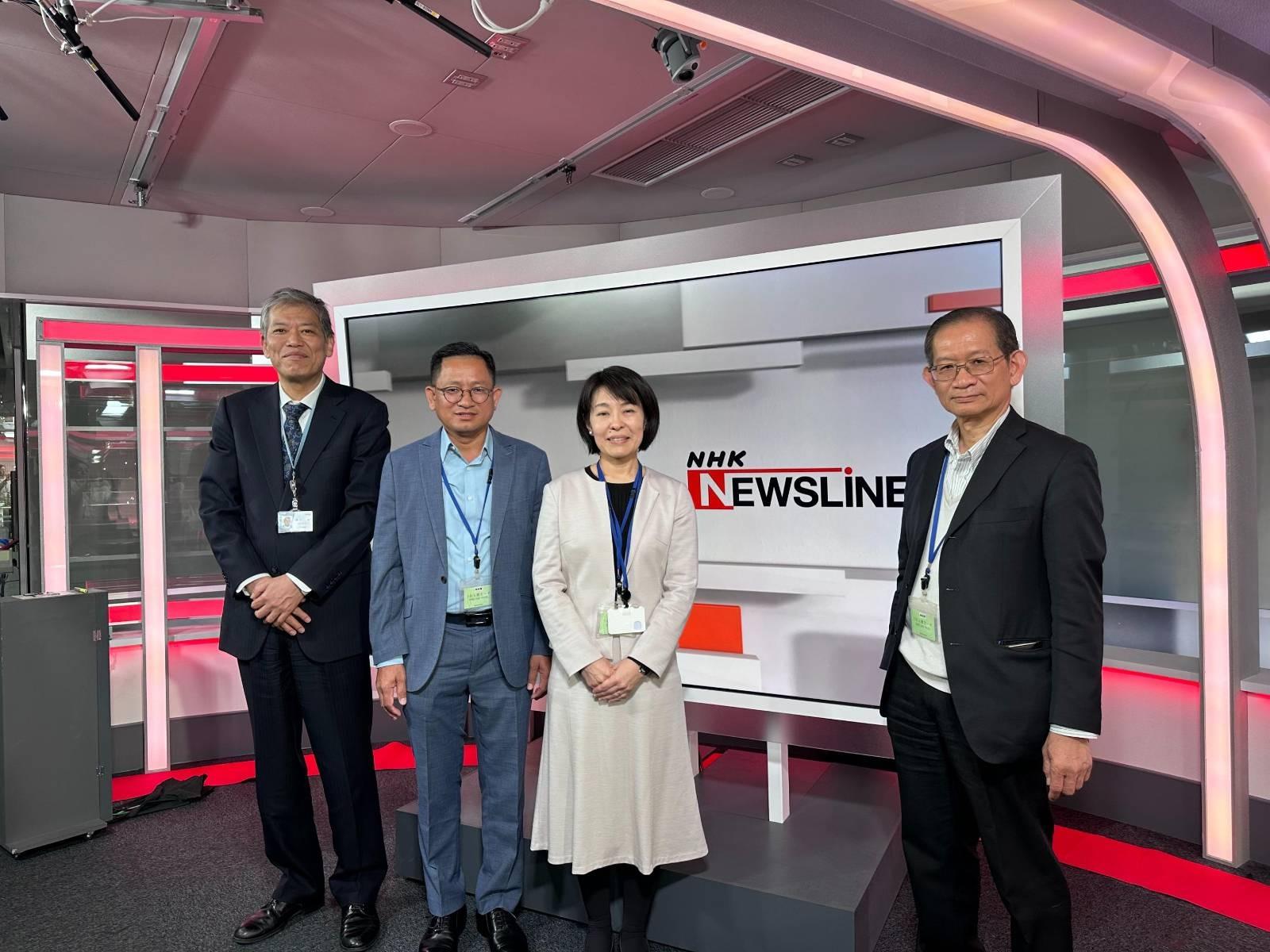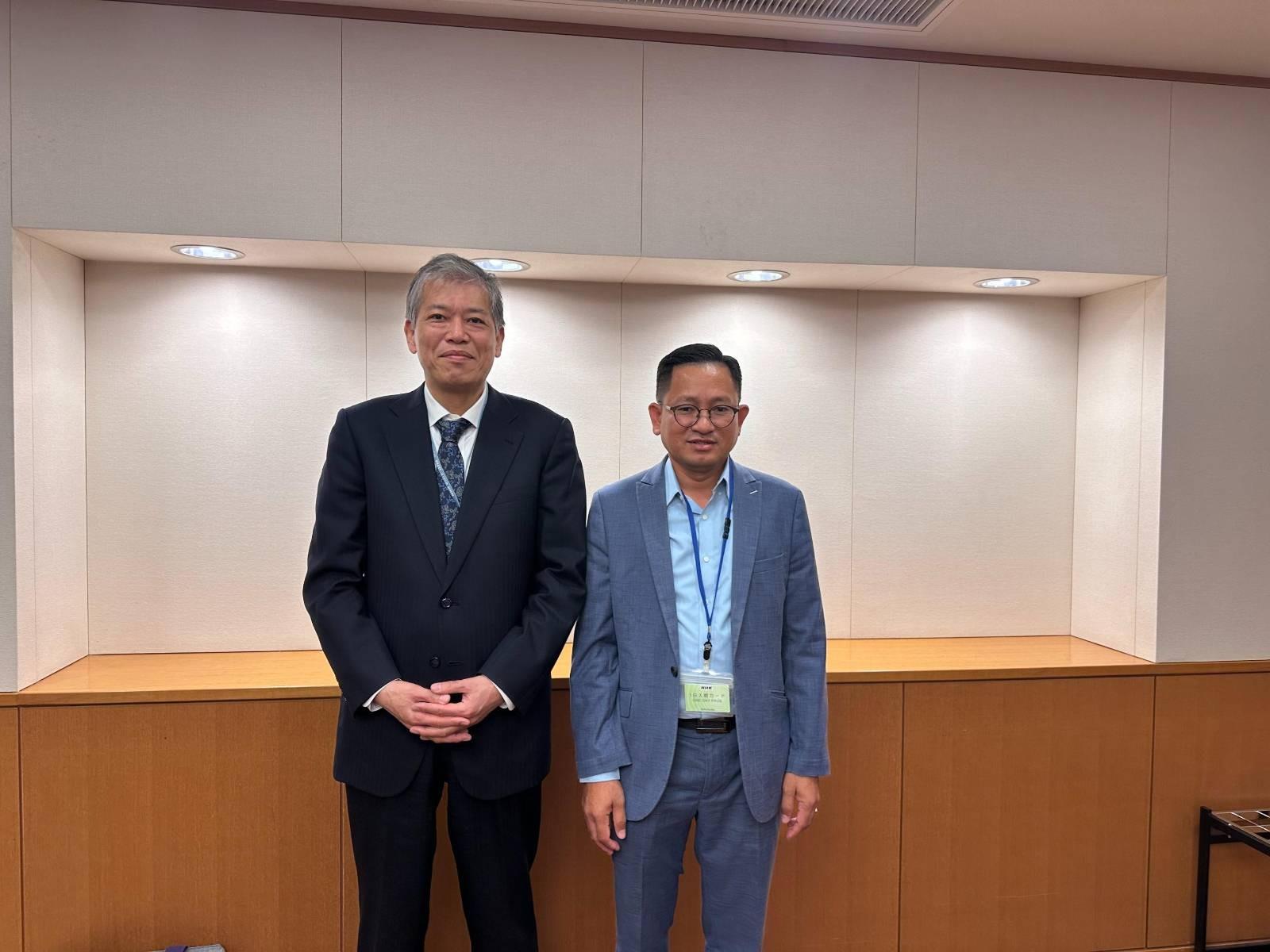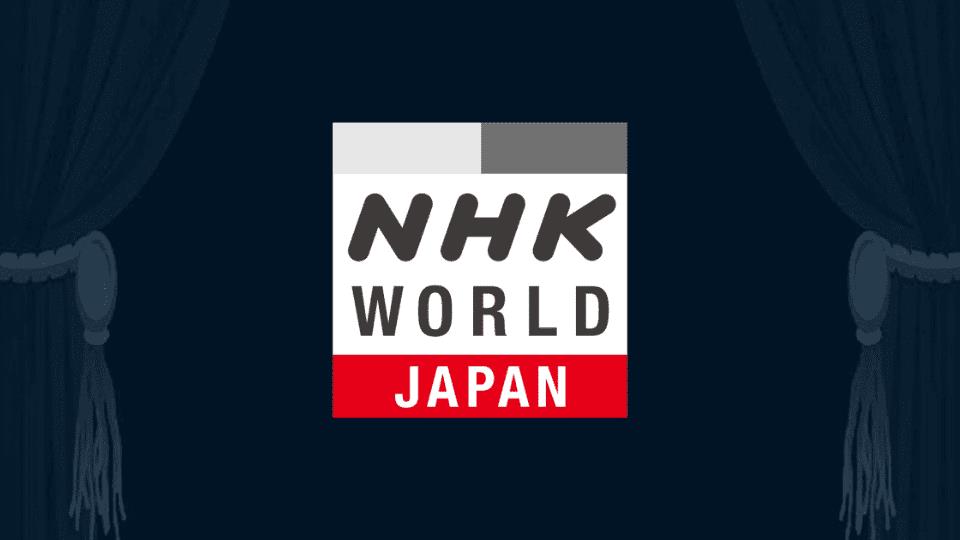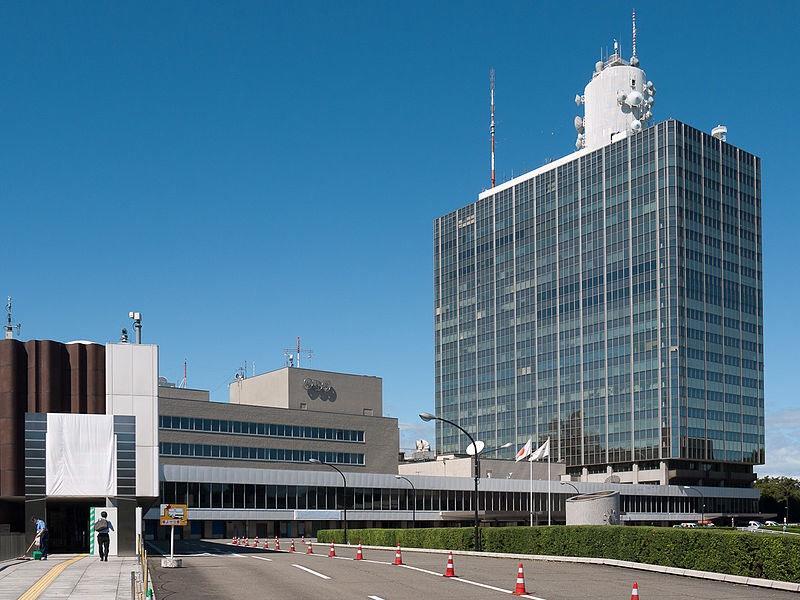Tokyo (FN), Mar. 11 – On his first day of work, Vann Saray, Deputy General Director of Fresh News, was invited by Japan’s Ministry of Foreign Affairs to visit the headquarters of NHK, the country’s only public broadcasting network, on 3 March 2025.
NHK first began broadcasting in 1925 via radio to provide public information following a devastating earthquake. The network expanded to television broadcasting in 1953 and currently operates two channels: GTV, which covers general news including politics, society, and the economy, and ETV, which focuses on educational content.
In addition to broadcasting in Japanese, NHK also provides content in English and 20 other languages, reaching a global audience through radio, television, digital platforms, and mobile applications.
Wataru Fujishita, Deputy Managing Director of NHK World, stated that NHK's operations adhere strictly to Japan's press laws, particularly in promoting social welfare. He emphasised that all news content and programmes are produced in accordance with professional ethics, ensuring fair coverage of political issues.
Fujishita revealed that NHK currently employs over 10,000 staff members across 54 prefectural offices and 29 overseas bureaus. He further disclosed that NHK’s annual broadcasting budget is approximately USD 4 billion, with 96.5 percent (around USD 3.8 billion) funded through monthly service payments from about 41 million households. The remaining 3.5 percent (approximately USD 0.2 billion) comes from other sources, including 0.6 percent from government contributions.
During the meeting, Vann Saray and Wataru Fujishita exchanged insights on media dissemination in their respective countries and discussed the growing influence of social media, particularly its role in spreading misinformation.
Fujishita noted that, similar to Cambodia, social media is widely used in Japan. However, its rapid growth has negatively affected traditional media, leading to declines in advertising revenue and an increase in misinformation. To combat this, NHK has established a dedicated team to monitor social media, verify sources, and swiftly respond by disseminating accurate news. He claimed that NHK’s commitment to credibility has earned the trust of Japanese citizens, who frequently turn to the network for reliable information during major events.
It is worth noting that Wataru Fujishita previously worked as a journalist in Cambodia during the 1990s. In 2020, he returned to the country when the Westerdam cruise ship docked in Sihanoukville during the COVID19 crisis. Reflecting on Cambodia’s transformation from post-war recovery to modern development, Fujishita remarked on the remarkable progress he witnessed.
=FRESH NEWS
